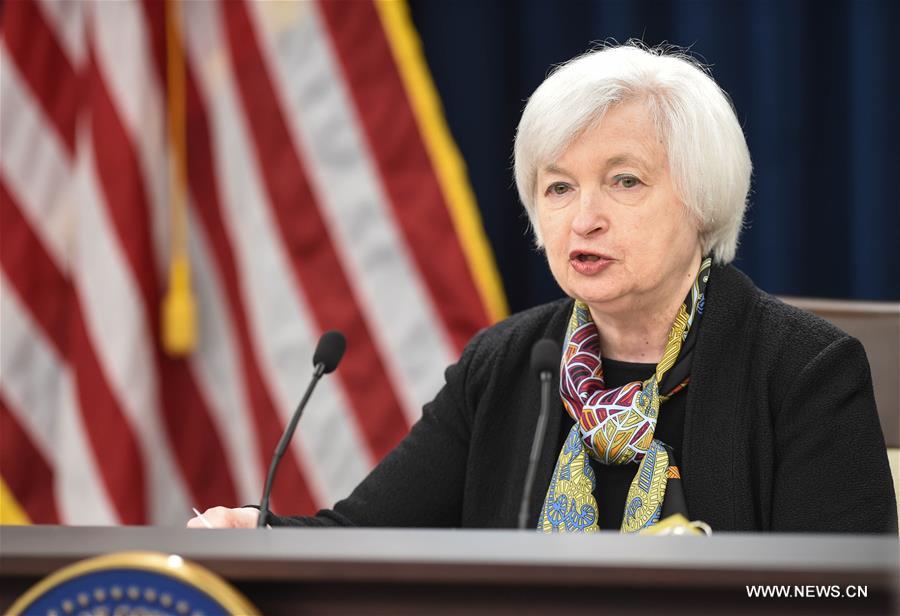
US Federal Reserve Chair Janet Yellen. Photo: Xinhua
The Federal Reserve Wednesday raised its benchmark interest rate a quarter point to a range of 1.25 percent and 1.5 percent. An interest hike is often a hallmark of recovering economy. As the US expects GDP growth of 2.5 percent and unemployment rate at 4.1 percent this year, exciting data for the country, American society has confidence in its economy.
How do we evaluate the past nine years since the financial crisis broke out in 2008?
Above all, the US economy has weathered through the hardest period. It's premature to say whether it has achieved an overall recovery, but the upward trend is impressively stronger than most Western countries.
The relative strength and sway of the US has been declining compared to 2008, while emerging Asian countries such as China and India have developed faster. The US recovery in recent years hasn't worked to reverse this tendency, and the fundamental change in the landscape of world economic growth in this century has continued.
Third, the US has undergone a relatively stable process in climbing out of the bottom of financial crisis, with no drastic internal tumult or shaken leadership. The country didn't suffer major strategic losses from the crisis, which shows its extraordinary abilities for self-healing and dealing with the crisis.
Fourth, electing Donald Trump to the US presidency indicates long-accumulated anxieties in US society are left unresolved. They include competition with emerging countries and public desperation due to stubborn social ills. The country has recovered from financial crisis, but has yet to address its declining competitiveness. It has become unprecedentedly mediocre.
This has invited different evaluations. Some say the US is waning, while others say it's stronger.
We think that given the US brilliant performance in getting over the crisis, it shouldn't be taken as a declining power. It is capable of maintaining momentum and keeping its strategic edge for a long time through partial adjustment.
But over the past nine years, while the world has evolved, the US hasn't changed its way of dealing with crisis, such as monetary easing, foreign debts and deficit hikes. It's hard to figure out which US president should be given the credit for the country's economic recovery. The country seems unable to forge consensus and carry out fundamental reforms.
The US is certain to weather through general crises using old formula and yet is unable to reform at the cost of readjusting the interest pattern. The future trajectory of the global economy is mainly decided by whether emerging countries are able to maintain higher growth than the US over the long run.
The economic competition between China and the US is in the making. China should neither underestimate US capability of practicing as it always has, nor feel dwarfed by US strength. China needs to do the utmost to release its own potential for development. It will become growingly true that China will capture the initiative in terms of economic strategy.


